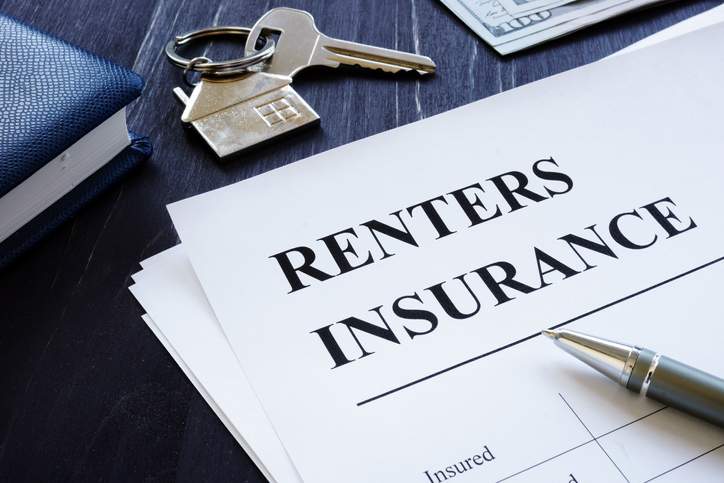For many folks renting housing, renters insurance is simply not on the radar. They assume their landlord will manage any issue with their apartment or rental. It’s common to think if the air conditioning goes out, my landlord will fix it. If there’s a fire in the building, the landlord will reimburse the cost of my brand new TV and antique dresser.
Unfortunately, these misconceptions cause renters a lot of grief – and cost them a lot of money. While landlords typically cover the costs of repair and upkeep of the building – things like dishwasher repair or air conditioning repair are not necessarily covered, nor are your personal belongings.
What is Renters Insurance?
Renters insurance protects the contents of a home in case of theft, fire, windstorm or vandalism. Many policies also provide liability coverage. For instance, if someone trips and falls in your kitchen – and needs stitches or sprains an ankle – renters insurance may cover their medical costs and protect you from being sued.
Do I Need It?
If you rent or sublet a home or apartment, the answer is yes. In fact, many landlords now require their tenants to carry renters insurance. The good news is that it’s affordable for most budgets, especially when compared to many other types of insurance. Some policies start at as low as $5 or $10 a month; they’re usually paid annually.
How Much Do I Need?
This part is up to you. Take stock of your possessions – your electronics, clothing, furniture and jewelry – and estimate the total value. You may even want to create a written report of every item you’d like to insure. In case of theft or damage, you can reference your report when filing a claim.
Then, decide if you want Actual Cash Value (ACV) or Replacement coverage. ACV reimburses you for the market value of your property. Replacement coverage provides the full cost of replacing the items that were damaged or stolen. With ACV, there may be a significant difference between the current market value of your laptop, for example, and the cost of purchasing a new one. Replacement coverage is much pricier, but covers the entire cost.
How Do I Minimize the Cost of Renters Insurance?
As with all types of insurance, the more coverage your purchase, the higher the price of the policy. Even though renters insurance tends to cost less than other forms of insurance, it’s still worthwhile to shop around and compare prices.
Be sure to ask about discounts. If you bundle your auto and renters insurance policies, you may be eligible for a discount. Protective and security devices, such as smoke alarms and deadbolts, may also bring down the cost of your policy.
Additionally, the higher the deductible, the lower your premium. This is an easy way to bring down your annual costs – just make sure you have enough money set aside to pay your deductible in case you need to file a claim. Read more about emergency funds.
What Doesn’t Renters Insurance Cover?
Coverage varies from company to company, so be sure to read the fine print. For example, most policies don’t cover floods. If you live in an area where floods are a risk, ask you agent about special flood coverage. The same is true for earthquakes.
And while renters insurance may cover some of your jewelry, the value of your engagement ring or grandmother’s pearls may exceed the coverage limit of your policy. Ask your agent about a rider policy for high-priced valuables to ensure you’re covered in the case of damage or theft.
Finally, ask your agent if your policy covers temporary living expenses. Extensive damage to your home may require you to find new housing while repairs are made.





